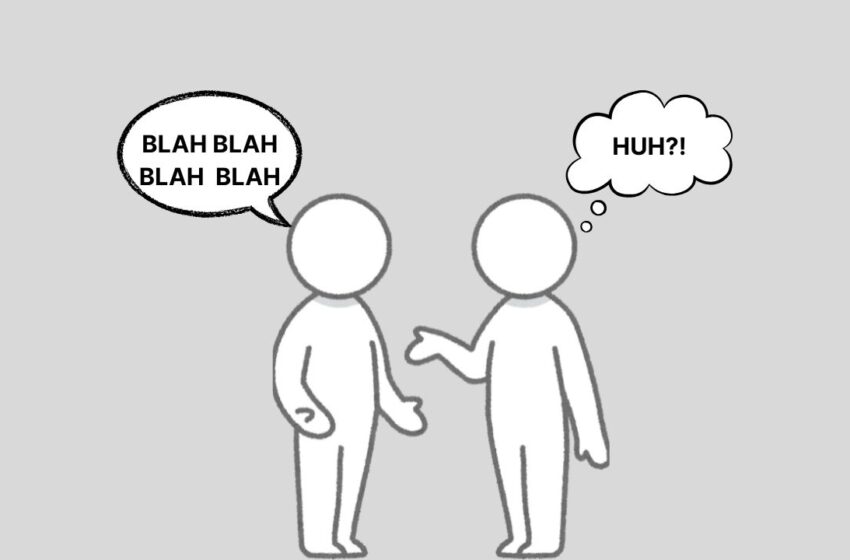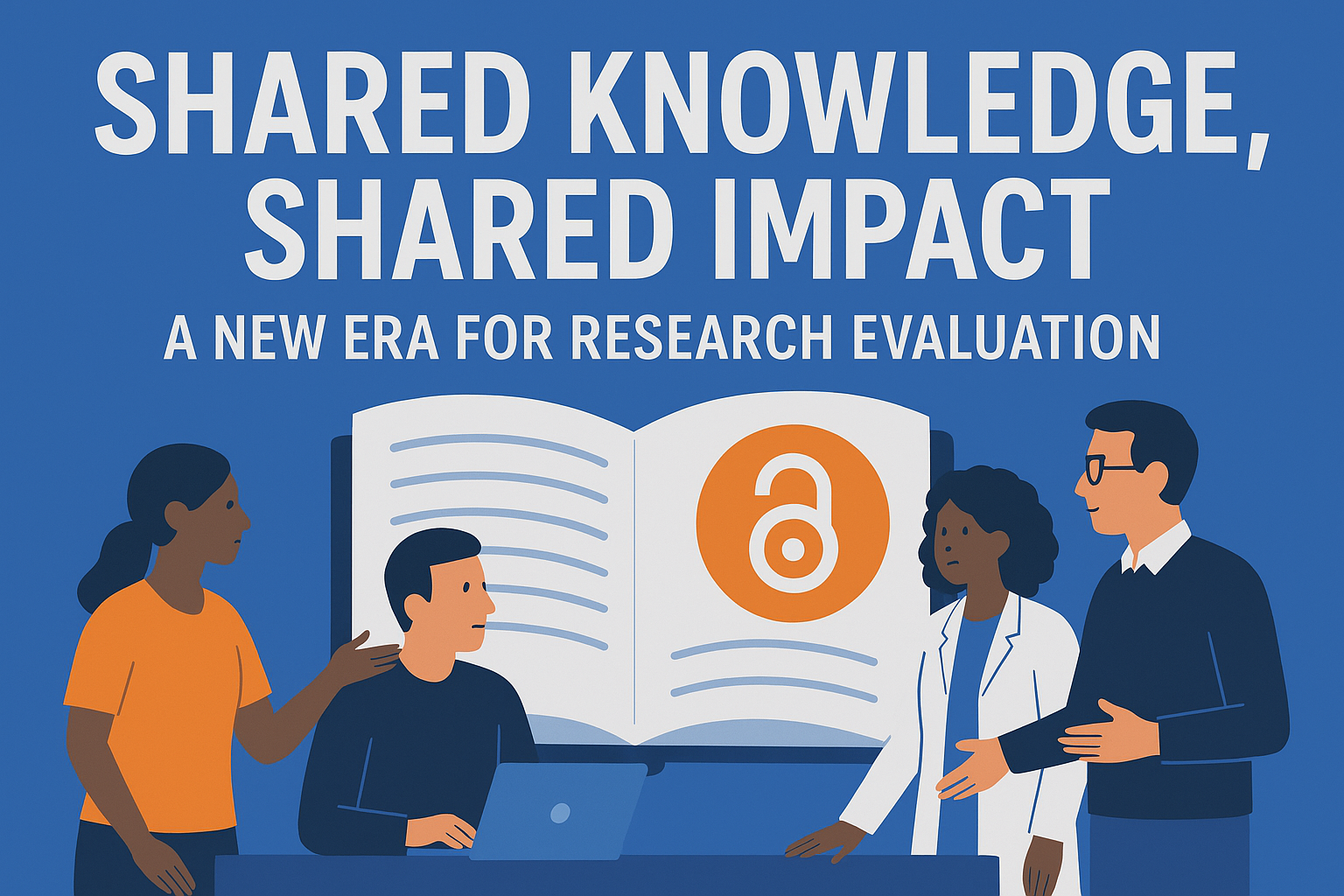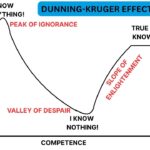When You Know Too Much: Breaking the Curse of Knowledge

Have you noticed that at times in-depth conversations on a subject, especially scientific subjects, end up being one-sided? One of the reasons for this could be the “curse of knowledge” or “curse of expertise,” which is a knowledge gap between the speaker/writer and listeners/readers.
General Examples of Curse of Knowledge
Curse of Knowledge Examples in Research Papers
How to Overcome the Curse of Knowledge
What is Curse of Knowledge?
Curse of knowledge is essentially a cognitive bias where one forgets what it was like to lack knowledge and assumes that everyone shares the same level of knowledge on a specific topic. Simply put, when you are aware of some information, it is difficult for you to remember what it was like to be unaware of that information. As a result, you tend to explain concepts at a level that may be difficult for others, who lack the necessary background, to grasp.
General Examples of Curse of Knowledge
We see real-world examples of this bias caused by the curse of knowledge quite frequently.
1. A teacher explaining a complicated concept to students.
Picture a classroom where a chemistry teacher, who is highly knowledgeable in the subject, is trying to explain a complex topic to his students. He writes a bunch of chemical reactions on the blackboard and proceeds to discuss the step-by-step processes that occur. Because of his extensive knowledge on the subject, the teacher fails to notice that his students lack the required background on the topic and does not consider it important to clarify the meaning of certain terminologies. This leads to students not understanding the concept in its entirety, resulting in improper knowledge transfer.
2. A scientist using technical jargon excessively in her research paper.
After completing her research, a scientist was keen to share her findings with the world. With the extensive knowledge she gained over the course of her research, she was familiar with all the technical terminologies that were part of her research. She wrote a paper that gave great insights into her study, yet her readers were unable to relate to the knowledge shared. Why? The scientist used jargon that her readers, perhaps even her peers in the field unfamiliar with her study, were not aware of. Thus, her paper did not create the impact she expected.
3. A manager misjudges the level of knowledge possessed by his trainees.
A group of new employees at a corporate office is sent for training under a manager, who has years of works experience. Because of his vast wealth of knowledge and experience of working in the organization, he uses company-specific terms during the training. The new employees hesitate to raise questions thinking that they would understand these unexplained terms at a later stage as they progress in the organization. However, the lack of a firm foundation in their learning is not a great start to their career.
Curse of Knowledge Examples in Research Papers
As researchers, we want nothing more than to share our work with the world! And yet, if not done in the right manner, our work may not have the impact we want it to. This is how the curse of knowledge affects an author’s academic manuscript.
Title
The title should capture the reader’s attention. However, because the authors are highly familiar with the research question, they tend to focus more on the process rather than the study impact.
Tip: Here are two titles.
a) A randomized trial comparing accelerometer-based step counts and self-reported logs in recreational runners.
b) Assessment of activity levels in recreational runners based on accelerometer vs. self-reported step counts.
While the first title highlights the “how” of the study, the second title covers the “what” and “how” to give a complete picture of the study.
Abstract
The core of the abstract should focus on detailing the problem addressed in the research paper. This means that if a clear objective is missing, the paper may be reviewed based on what the reviewers expect the topic to be rather than what the author intended.
Tip: Always clearly indicate what your research intends to address to set the expectations right. This objective statement should clearly indicate what problem is solved by your research to ensure a fair assessment of your paper.
Introduction
Because of the curse of knowledge when authors are deep into the research, they might fail to include some of the essential background information that is necessary for the readers to understand the study.
Tip: While the background need not be extensive, provide sufficient context for the readers and clearly explain the study rationale. For instance, highlight the significance of the study by clarifying the reasons for selecting the study topic and the analyses methods.
Methods/Results
The methods section should be systematically presented with enough details for other researchers in your field to replicate your study. Authors might overlook some of the fundamental steps as being “obvious” and neglect to describe them, which might lead to confusion among reviewers and readers alike.
When it comes to the results section, the curse of knowledge could push authors to use descriptive language when reporting the findings.
Tip: Describe each experimental technique, methodology, and process followed to achieve the results with sufficient details. For instance, provide complete information on all experimental groups, control groups, and statistical tests. The corresponding findings reported in the results section should be presented using precise language. Also, make sure that the results provided match the methodologies described and avoid deviating from the main findings.
Discussion
The discussion section is meant to present a strong take-home message. But the curse of knowledge can result in missed opportunities, with the authors failing to note important study implications.
Tip: Compare your work critically with previous studies on the topic and ensure that your findings are interpreted correctly. Do not hesitate to include the study limitations as these can form the basis for future research directions.
How to Overcome the Curse of Knowledge
This knowledge bias can impact effective communication, especially in the case of researchers and scientists. So, here are 5 tips to overcome the curse of knowledge.
1. Get an external evaluation: Rather than relying on self-evaluation, have an external eye assess your paper before submission. You can take the help of your colleagues, peers, or professional editing and proofreading services to do a pre-submission review to address the issues caused by the curse of knowledge.
2. Refrain from presuming: The biggest reason for the curse of knowledge being manifested in research papers is assumptions! Always draft manuscripts by keeping your readers in mind and do not assume that they will have pre-existing knowledge of complex concepts.
3. Use plain, simple language: While technical jargon is necessary in research papers, using them extensively can make the reading experience difficult. Keep the tone straightforward and use precise language to avoid confusing readers.
4. Provide a list of abbreviations: This could be a requirement in most journals. But even if it is not mandated, include a list of abbreviations to give clarity to the readers on what the terms indicate.
5. Ensure proper transitions between sections: While the study makes complete sense to you in your head, your readers may not be able to connect the ideas if you use poor transitions in your paper. For instance, rather than expecting the readers to make the connection between the research questions and results, state clearly how the two are related.






